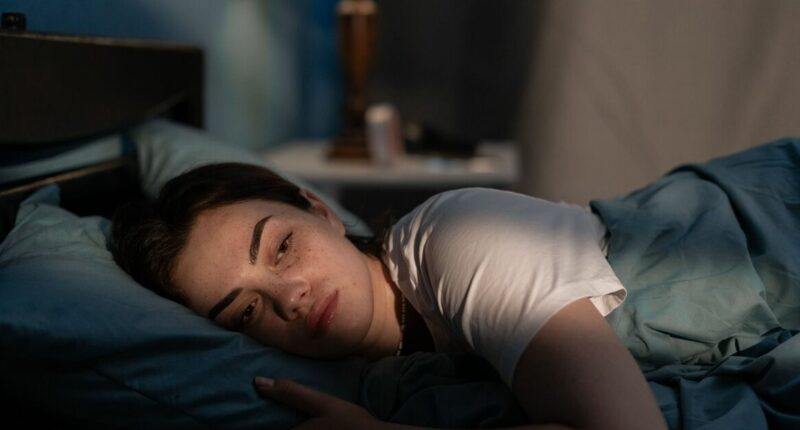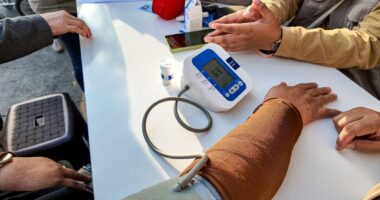Share this @internewscast.com
Insomnia is a sleep disorder that impacts between a third and 40% of adults throughout the UK. This condition, characterized by ongoing difficulties with falling or staying asleep and poor-quality sleep, can lead sufferers to experience fatigue, irritability, and difficulties with daily functioning.
Many people try to combat insomnia by adhering to “sleep hygiene” tips such as maintaining a strict bedtime, reducing caffeine intake, and avoiding screens before sleep. However, some of these strategies might be counterproductive for insomniacs. Kirsty Vant, a sleep therapist and researcher at Royal Holloway University of London, has identified which “sleeping hacks” might actually exacerbate the problem.
The first thing she revealed was spending more time in bed.
She explained to The Conversation: “When sleep doesn’t come easily, people often want to go to bed earlier or sleep in later to ‘catch up’. This tactic frequently backfires. The more time you spend awake in bed, the weaker the mental connection between bed and sleep becomes, while the link between bed and frustration strengthens.”
Instead, Ms. Vant advises limiting the time spent in bed by going to bed “a little later” while still waking up at the same time each morning. This approach bolsters “your body’s natural drive to sleep” and re-establishes the bed as a trigger for sleep, not wakefulness.
The sleep expert also addressed the idea of avoiding screens completely. While people are frequently advised against using screens before bed, she considers this guidance “may be overly simplistic.”
She elaborated: “Rather than eliminating screens entirely, try using them thoughtfully. Select calming, non-stimulating content, utilize night-mode settings, and avoid aimless scrolling. A quiet podcast or relaxing documentary can serve as the right kind of distraction to help you unwind.”
Cutting out caffeine is a popular “tip” that people are often, and while stimulant does block adenosine, a neurotransmitter that makes us feel sleepy, everyone processes it differently and so cutting it out completely “isn’t always necessary” but rather “understanding your individual response” is the key.
However, if you are sensitive to caffeine, Ms Vant recommends avoiding it later in the day.
Another key thing is trying to optimise sleep and becoming obsessed with sleep quality. The sleep therapist made note of the £400 billion-pound market of sleeping products that such as trackers and “sleep-promoting sprays”, which can actually contribute to a condition called orthosomnia – an unhealthy obsession with tracking sleep that causes anxiety and worsens insomnia.
She added: “It is important to remember that sleep is an autonomic function, like digestion or bood pressure. While we can influence sleep through healthy habits, we can’t force it to happen.
“Becoming obsessed with sleep quality can paradoxically make it worse. Sometimes, the best approach is to care less about sleep – and let your body do what it’s designed to do.”
The final thing thing Ms Vant tackled was the expectation of getting the same amount of sleep each night. The sleep therapist stated that healthy sleep isn’t a fix number of hours but rather that it is dynamic and responsive to lifestyles.
There are a number of factors that can impact sleep, such as stress, physical health, age, environement and various responsbilities like parenting.
However she explained “flexibility in our sleep has always been a survival trait” and that expecting rigid consistency from your sleep sets up unrealistic expectations. Some nights will be better than others – and that’s normal.”















